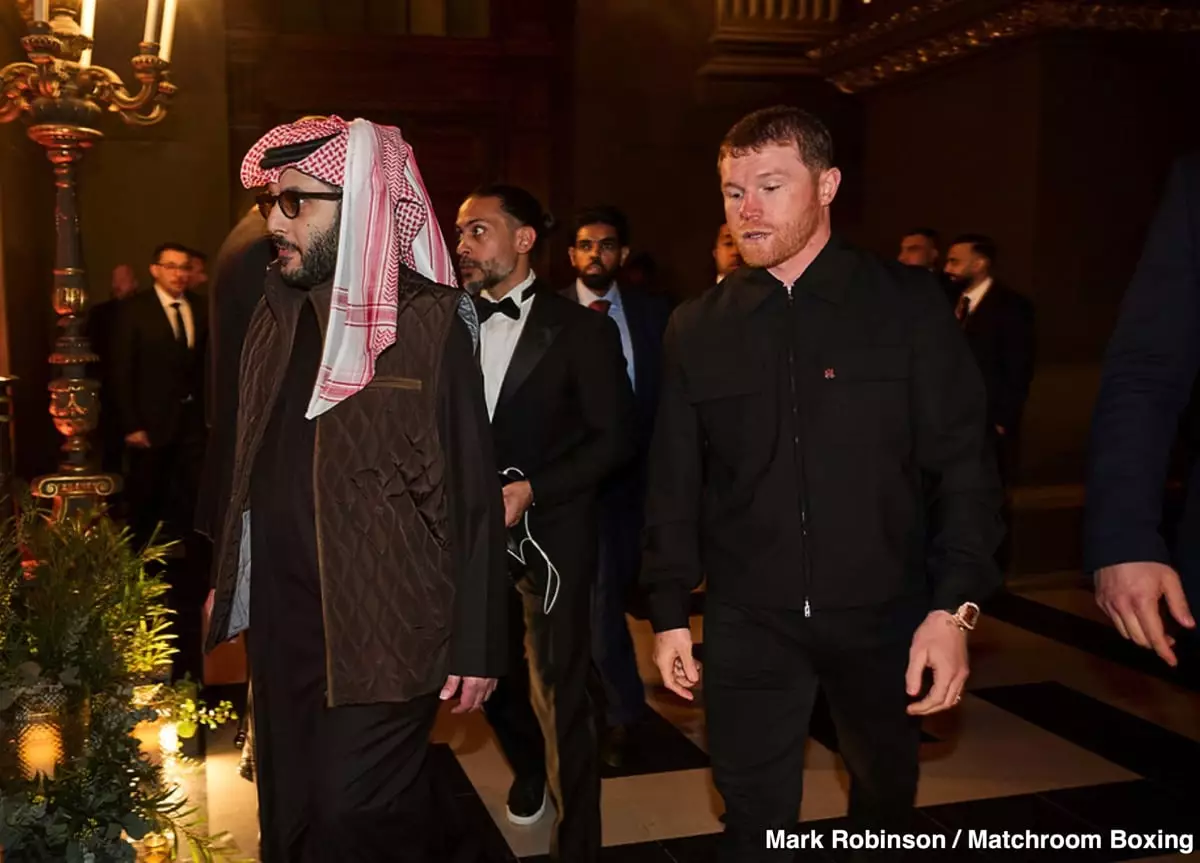The world of boxing is renowned not only for its athletic prowess but also for the staggering financial rewards it offers its top contenders. Mikey Garcia’s recent comments about Canelo Alvarez serve as a poignant reminder of the era we live in, where the sport is increasingly driven by the prospect of wealth over titles. As Alvarez prepares for his high-stakes bout with William Scull and potential face-off with Terence Crawford later this year, the distinction between legacy and financial gain becomes ever clearer.
Garcia estimates that Alvarez, currently valued at upwards of $200 million, is on the cusp of doubling his wealth, potentially earning an astonishing $400 million. While titles and accolades have traditionally been the zenith of a boxer’s career, it appears that Alvarez’s motivations have shifted toward economic security—not just for himself, but for generations to come. This shift raises critical questions about the nature of success in modern sports, particularly boxing.
The Transition from Titles to Paychecks
Alvarez’s trajectory illustrates a broader trend in professional sports, where the fire for greatness is often obscured by the allure of financial gain. Garcia posits that with Alvarez’s current success—boasting an impressive record of 62-2-2 with 39 knockouts—he has effectively conquered the mountain of boxing championships. The upcoming fights may not be about adding to Alvarez’s trophy cabinet, but rather securing a financial foundation that will afford him and his heirs a comfortable life.
Garcia’s assertion that Alvarez fights “only for money” reveals a fundamental shift in the athlete’s psyche. No longer is the ring merely a venue for personal glory; it has become a place for monetary negotiations, where success is quantitatively assessed in dollar signs rather than championship belts. This evolution in priorities prompts a reflection on what it truly means to be a champion in today’s sport.
The Role of Saudi Arabia and Global Boxing Economics
The involvement of Saudi Arabia in boxing has transformed the economic landscape, granting fighters lucrative opportunities that were once unimaginable. Alvarez’s potential contract renewal with Riyadh Season could catalyze a new chapter in his financial narrative. As Garcia notes, the Saudis are likely keen to promote Alvarez as a marquee draw, necessitating encounters with challenging opponents like Dmitry Bivol and Artur Beterbiev to elevate his profile and earnings further.
This regional investment in the sport also underscores a shift in the power dynamics of boxing venues. No longer is Las Vegas the undisputed capital of boxing; the sands of Riyadh are becoming fertile ground for promoters and fighters alike. With such backing, Alvarez stands to gain not only from his own bouts but from a broader financial ecosystem that seeks to elevate the sport on a global scale.
Crawford vs. Alvarez: A Clash Beyond Records
As we approach the anticipated showdown between Canelo Alvarez and Terence Crawford, the narrative is more than just a contest of skill. Garcia predicts this fight will be about tactics and strengths, weighing Crawford’s boxing prowess against Alvarez’s undeniable power. Yet, at the heart of this match lies a financial backdrop that eclipses traditional boxing rivalries.
Crawford, buoyed by the potential for the biggest payday of his career, is stepping into the ring at a crucial juncture. The conversation surrounding this fight is not solely about who will emerge victorious but also about the lucrative implications for both athletes. Boxing purists may lament the prioritization of profits over legacy, but the reality remains that fighters must navigate a landscape where financial security is paramount, especially in an era defined by economic uncertainty.
Legacy vs. Earnings: The New Battleground
Ultimately, the boxing world stands at a crossroads, with fighters like Canelo Alvarez embodying the tension between legacy and earnings. While some may criticize this evolution as detrimental to the sport’s integrity, it’s essential to acknowledge the realities that influence these decisions. Athletes operate within a system that prizes not only performance but the financial viability of their careers.
In this brave new world of boxing, where generational wealth can be just a bout away, the cultural narratives around what it means to be successful are bound to shift. Canelo Alvarez’s story may not be about another title but rather about crafting a lasting financial legacy—a testament to how the sporting landscape continues to evolve in striking ways.


Leave a Reply